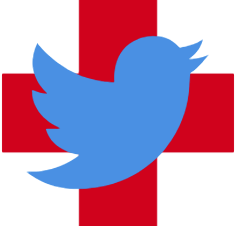The Best #TipsForNewDocs Tweets Showcase MedTwitter's True Worth
Those who tweet under the hashtag offer up free advice that can cost thousands of dollars elsewhere, either through CME credits or in medical school.
Shortly after Milton Packer, MD, a respected but perhaps out-of-touch clinical investigator, lambasted Twitter for its unavoidable noise and biases, physicians of the #medtwitter army rose up to contend that the social media platform is much more than a meaningless, one-sided echo chamber. Rather, Twitter is just like the humans who use it — inherently imperfect but capable of astonishing things if you’re just willing to give it a chance.

Maybe Packer is right, and physicians shouldn’t rely on Twitter as their sole source of updates for advances in medicine. But what’s more obvious is that Packer is refusing to consider all the other strange and beautiful things that keep 336 million users coming back to the site every month. As one user wrote, Packer is “a pioneer in evidence-based medicine [who] speaks anecdotally about the dangers of Twitter.”
I’m not writing today to refute the arguments in Packer’s opinion piece about sparse “evidence of evidence” on Twitter (#medtwitter and several responding op-eds have already taken care of that). Rather, I’m writing to shine another spotlight on the salt-of-the-earth physicians who make #medtwitter a world worth participating in and paying attention to.
Good examples are not hard to find. Look no further than Mark Reid, MD, who tweets under the handle @medicalaxioms (and notice, while you’re visiting his page, his pinned tweet, which might have stopped Packer in his tracks, had he taken the time to read it. Too bad he doesn’t have an account!). Reid has nearly 45,000 followers — a testament to the growing understanding that physicians are eager to consume and engage with each other’s thoughts, opinions, and professional advice.
Another fantastic example? The hashtag #tipsfornewdocs. Those who tweet under the hashtag offer up free advice that can cost thousands of dollars elsewhere, either through CME credits or in medical school. But the esteem of their peers through likes, retweets, and new followers is sufficient motivation in the enterprising #medtwitter world.
@SharleenY Have you noticed how much mentorship you’ve gotten today? It took me a year to get this much good guidance in 1996!#medtwitter #TipsforNewDocs
— Mark Reid, MD (@medicalaxioms) April 11, 2018
And for physicians like Packer, who pay no mind to Twitter because they go to the journals for their news, well, the news is in: The journals are paying attention to Twitter and have been for some time. In fact, a recent analysis published in the Wiley Online Library sought to refine all the information tweeted under the #tipsfornewdocs hashtag. Here’s what the authors, led by Dr. Mohammed Ahmed Rashid (@Dr_A_Rashid), found:
“Despite their brief and often jocular nature, #TipsForNewDocs tweets provided meaningful advice for newcomers to the profession, often focusing on tacit learning and professional socialization. Hashtag-driven enquiries can be a valuable and time-efficient way of accessing and sharing tacitly held knowledge. Social media content analysis can provide valuable insights into key educational issues.”
What stands out most about Twitter is that it connects physicians in a way that’s not better or worse than what’s currently available (vehicles like conferences or journal articles), but in a way that’s different and more efficient. Like all evolving tech, it’s prone to skepticism from members of the old school. And like all new tech, it has the potential to change the way we see the world.
So indulge in a few of the most outstanding #tipsfornewdocs tweets, and take a quiet moment to ruminate on their raw, unsullied value. In a world without Twitter, they’d be locked up in the brain of some distant physician you might never get the chance to meet.
#tipsfornewdocs: Take the time to learn (and remember) the names of the nurses, techs, support staff with whom you work. Introduce yourself to new colleagues every shift. Invite & be open to their feedback to help you improve - not just attendings, senior residents etc.
— Seth Kelly (@seth_kelly) May 21, 2018
#TipsForNewDocs You are about to become a physician, a member of an ancient and honorable profession. You will never be a "provider." Accept no denigration from outside entities. They only want to control your practice of #medicine.
— Gavin Preston, M.D. (@GavinPrestonMD) May 16, 2018
Write every chart note like you're afraid of being sued. #TipsForNewDocs
— Dr. Glaucomflecken (@DGlaucomflecken) May 23, 2018
My #TipsForNewDocs and medical students is always: if you want to save lives, listen to the nurses. They are with the patient way more than any of us docs are. Can't even keep track of all the times the nurse saved the patient. #nursesappreciationweek #ANurseSavedMyArse
— Roxana Daneshjou (@RoxanaDaneshjou) May 7, 2018
Med students & residents:
"Patient has a history of trisomy 21..."
Nope. Not unless they've outgrown it.
Instead:
"Patient has trisomy 21 with past medical history that includes...."#tipsfornewdocs
— Amy G Dala MD (@AmyGDalaMD) May 7, 2018
Good rule of thumb: Figure out what you think is wrong and how sick the patient is.
Then 1) figure out what they’ll end up having if you’re wrong and 2) act like they’re a little sicker than you think. #TipsForNewDocs
— Mark Reid, MD (@medicalaxioms) April 21, 2018
Residents/students: when you are caring for child with chronic and/or rare disease, use the opportunity to ask family how it presented. Family will appreciate telling their story & you will learn more about the condition. #TipsForNewDocs
— Amy G Dala MD (@AmyGDalaMD) April 20, 2018
You👏🏻are👏🏻never👏🏻alone👏🏻
Try to know when you need help and ask for it. People won’t be lovely all the time, but help is always there when you need it. #TipsforNewDocs
— Toby Gilbert (@DrTobyGilbert) April 11, 2018
Editor’s note: This is a column written by Tom Castles, associate director of editorial. His analysis reflects his views, not necessarily those of the magazine.